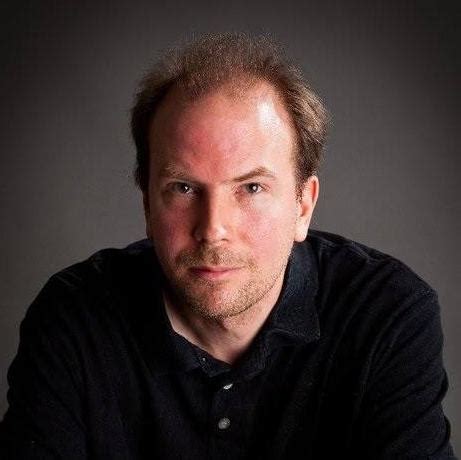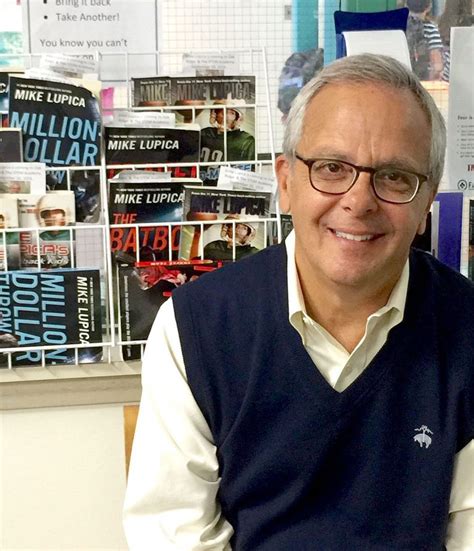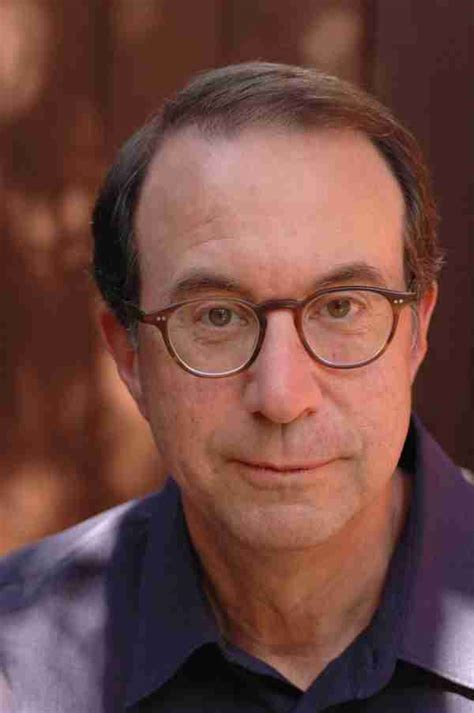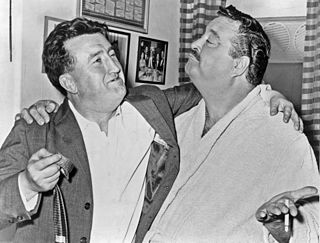A Quote by Adrian McKinty
Every publisher or agent I've ever met told me the same thing - that Irish readers don't want to read about the bad old days of the Troubles; neither do the English and Americans - they only want to read about the Ireland of The Quiet Man, when red-haired widows are riding bicycles and everyone else is on a horse.
Related Quotes
Everyone likes a bit of variety. I'm sure none of my readers only want to read about anti-heroes or villainous protagonists any more than they only want to read about square-jawed heroes doing the right thing. I just write characters than entertain me and hope they'll be ones that other people want to read about, too.
If you feel like keeping a journal-that neither you nor anyone else on earth will ever want to read-be my guest. But if you want to write something that may eventually see the light of day, that a magazine might buy or a publisher publish, then you'll have to knock off the journaling and do the grunt work that real writing requires.
I never had a plan, except to write. I love what I do, and have from the beginning. Loving what you do makes it a lot easier to work, every day, to face the tough spots and heel in for the long haul. Nothing against plans; they work for some people. But for me, if I'd been planning, worrying about numbers, trying to micro-manage my career, I wouldn't have focused on the writing. If you don't write, you're not read. If you're not read, you don't sell. So that's my Master Plan, I guess. Write the books, let the agent agent, the editor edit, the publisher publish.
YOU WILL ALWAYS BE THE ONLY ONE FOR ME ' - I always want to be with you more than with anyone else. I always want to talk to you before anyone else. I always want to laugh with you * walk with you ? * read with you * play with you * be quiet with you * be noisy with you make plans with you discuss the past and future with you You will always be the person who makes me happy, content, excited and peaceful No matter how much time passes our love will not only prevail but it will be stronger than ever.
In the 19th century, the English were loathed. Every memoir that you read of that period, indicates the loathing that everybody felt for the English, the only difference between the English and Americans, in this respect, is the English rather liked being loathed and the Americans apparently dislike it intensely.
A novel can educate to some extent, but first a novel has to entertain. That's the contract with the reader: you give me ten hours and I'll give you a reason to turn every page. I have a commitment to accessibility. I believe in plot. I want an English professor to understand the symbolism while at the same time I want the people I grew up with - who may not often read anything but the Sears catalog - to read my books.
Literary men now routinely tell their readers about their divorces. One literary man who reviews books wrote, in reviewing a study of Ruskin, that he had never read a book by Ruskin but that the study confirmed him in his belief that he didn't want to read a book by Ruskin. This man very often writes about his family life.






































